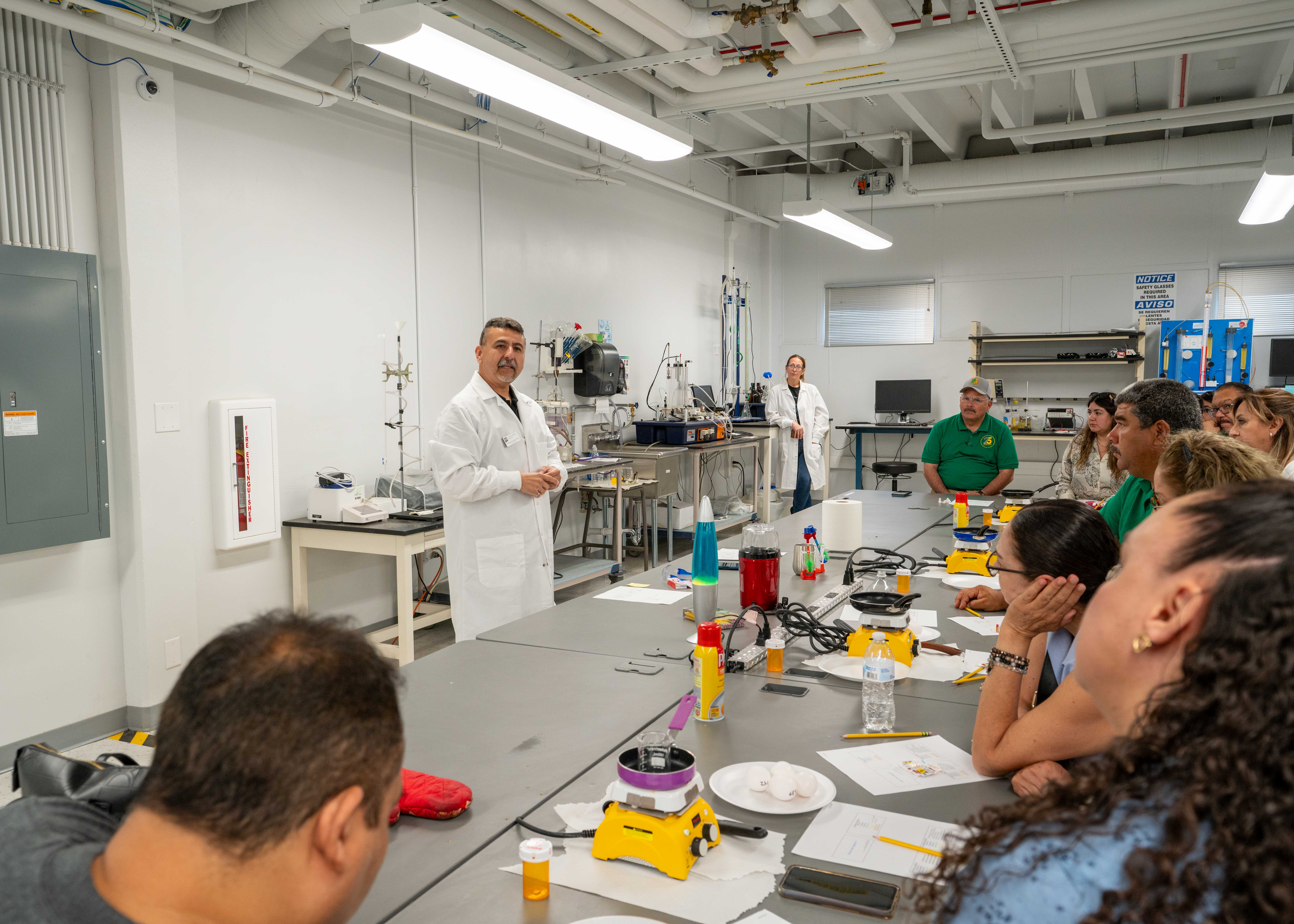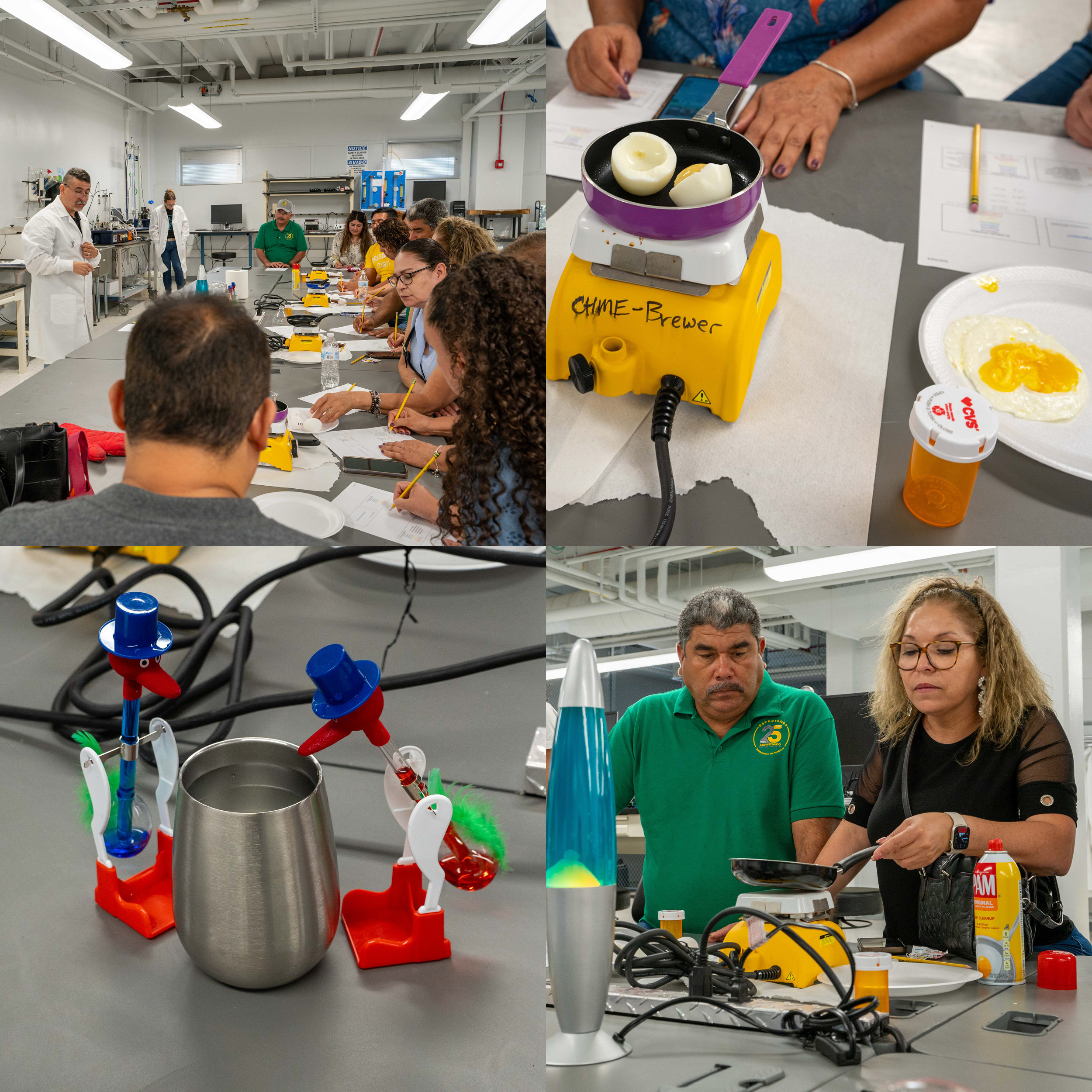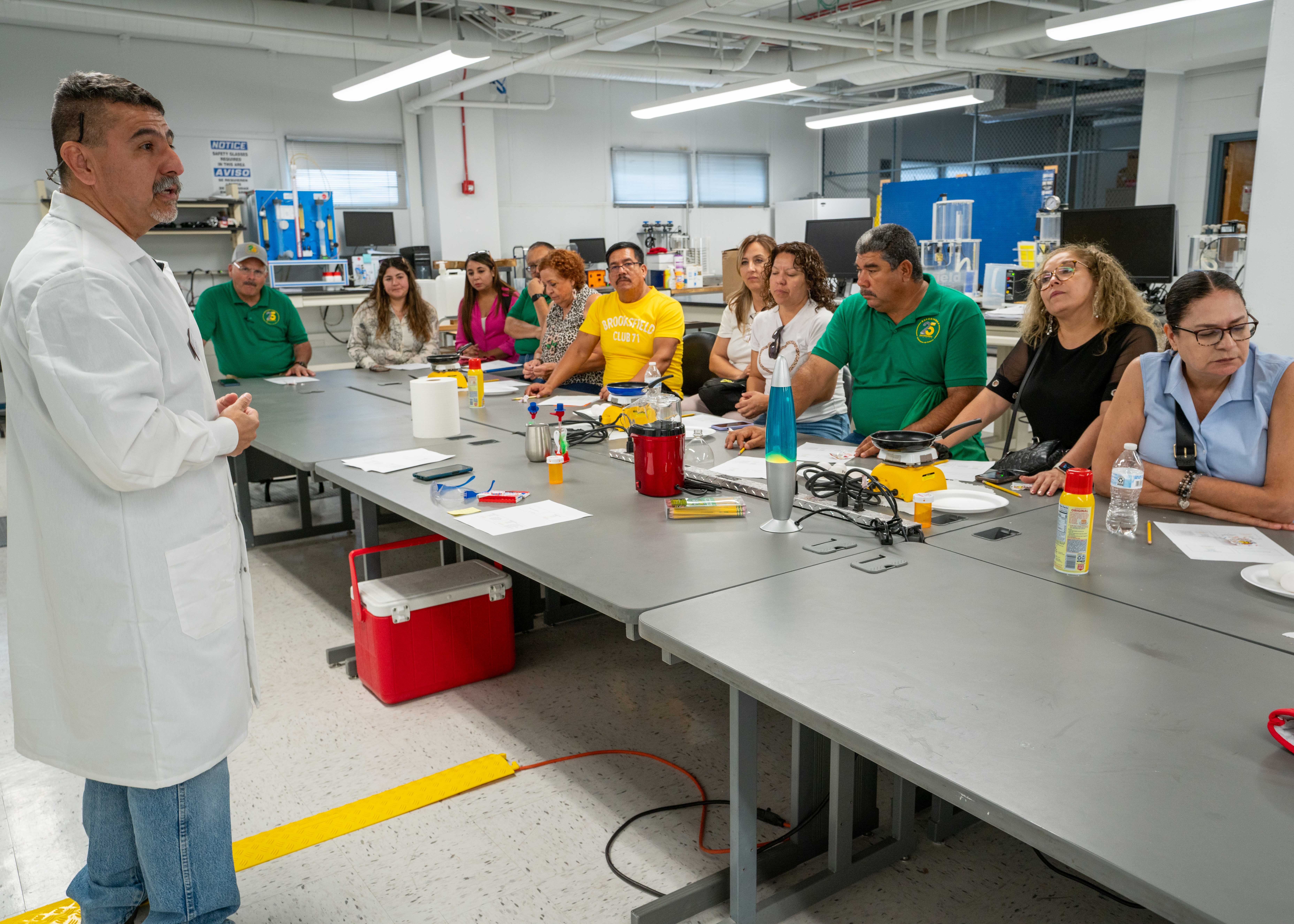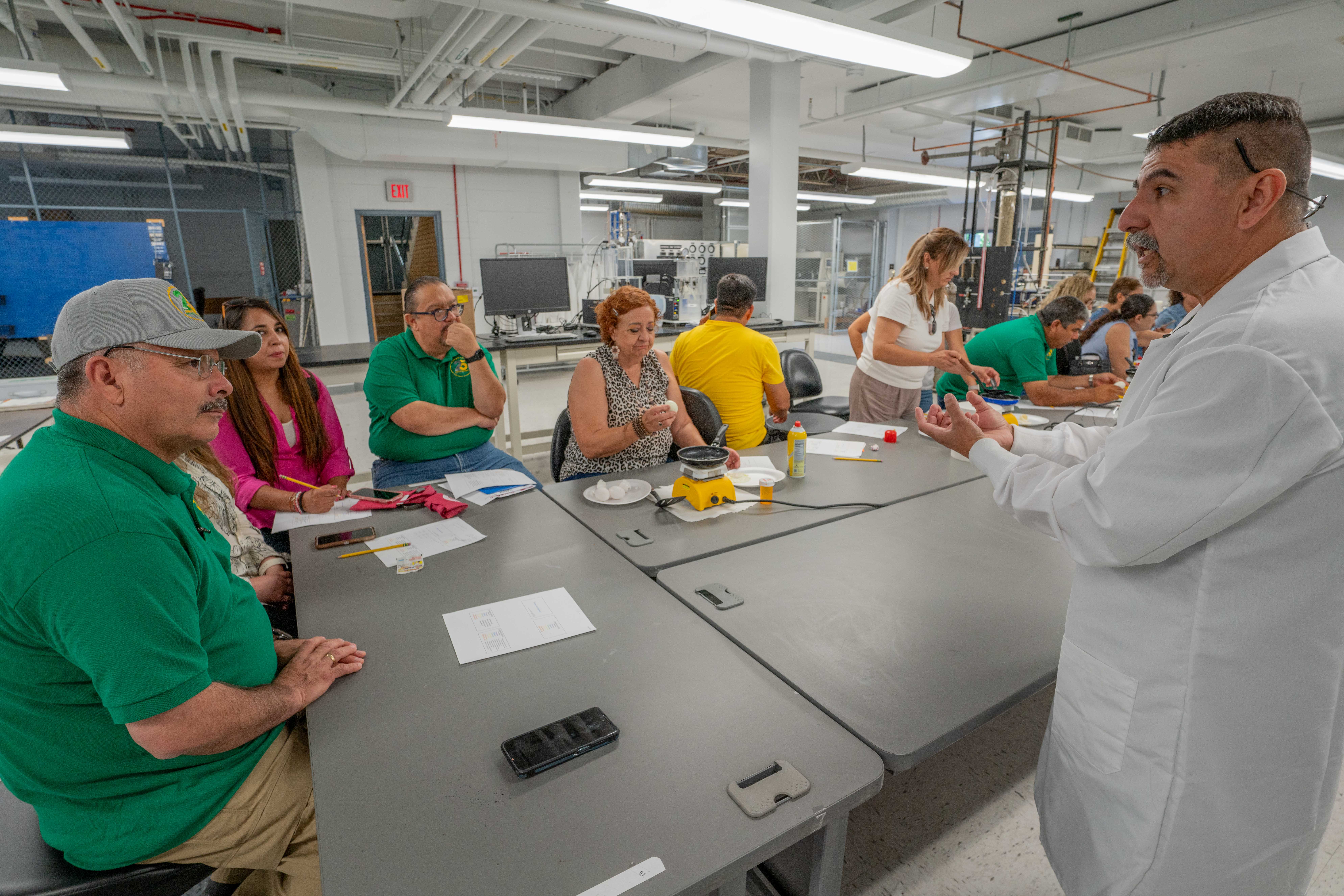The College of Engineering at New Mexico State University welcomed middle school teachers from Ciudad Juárez, Mexico, for a workshop on the scientific method and its application in everyday life.
The workshop’s goal is to share middle school, age-appropriate STEM exercises with the teachers and increase awareness of the opportunity Mexican citizens have to study at NMSU.
“A lot of those students grow up, literally under the shadow of university in El Paso, Texas,” said Eliseo De León, professor of practice in the Department of Chemical and Materials Engineering. “They don’t even know there’s other opportunities they can take advantage of in New Mexico.”
The “Descubre” program is offered by NMSU to Mexican citizens with the goal of reducing international student tuition fees.
During the visit, De León presented the teachers the Chemical and Materials Engineering program and the opportunity it provides to study at NMSU. De León delivered a workshop which aimed at showing how the scientific method is applied in everyday activities.
The first phase of the workshop consisted of having the teachers put themselves in their students’ place and chew a piece of gum to find out how many bites it takes to soften it. Since children are bound to know what chewing gum is, the objective is to demonstrate that the scientific method can be applied to everyday events in their lives.
“The reason we do this with bubble gum is because children are familiar with bubble gum, and for them it’s just something that’s part of their world already,” De León said. “What I hope to achieve is to bring them into that scientific world without taking them out of their childhood world.”
The second phase of the workshop was an experiment that consisted of frying eggs pretreated with different thermal and mechanical properties. During the experiment they used a frozen-thawed egg, a boiled egg, a scrambled egg and a normal egg to compare the results. The goal of these experiments is to show teachers different types of activities that they can use to teach their students the scientific method.
"Our objective is that when the children observe this, when the children get to participate in this kind of behavior, they, number one, learn about the scientific process. Number two, and maybe even more important than number one, they learned that science is something that is all around us. Science is what you do every day,” he said.
De León spoke of the benefits of teaching the workshops to the teachers in their native language, Spanish, and talked about a previous experience with students from Gadsden Independent School District.




